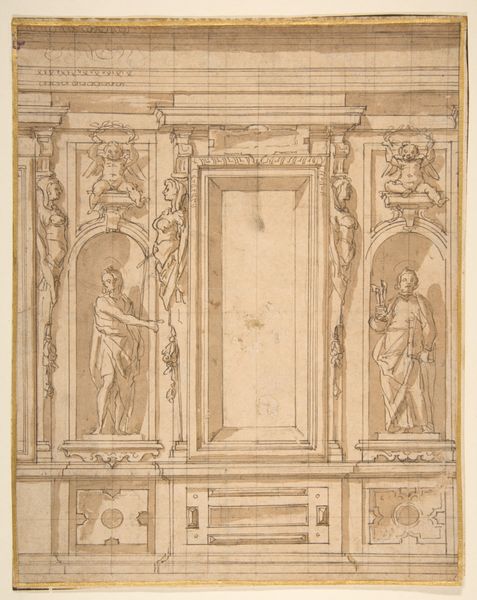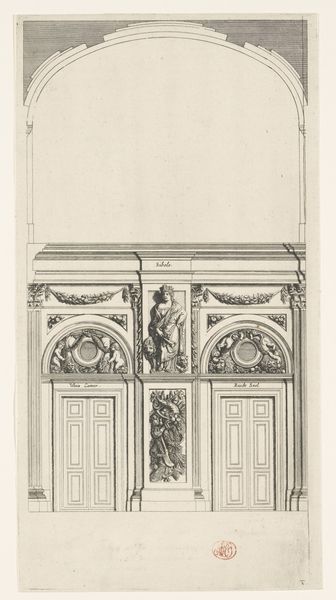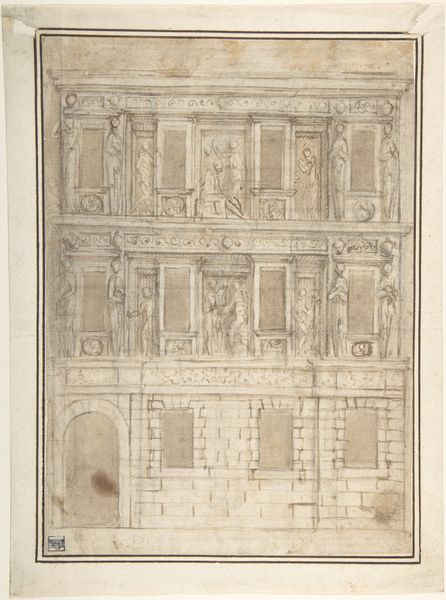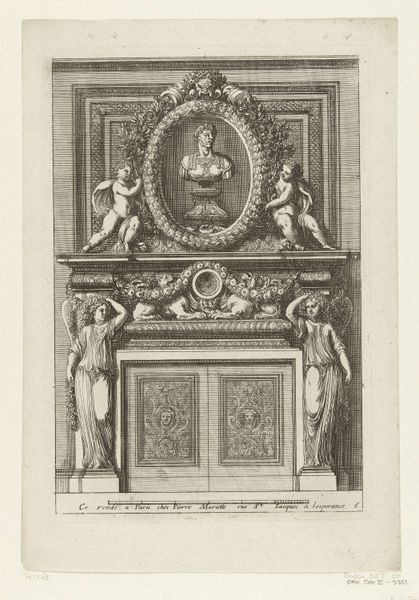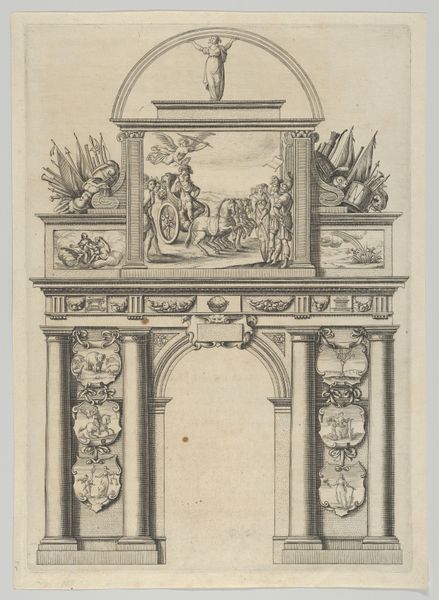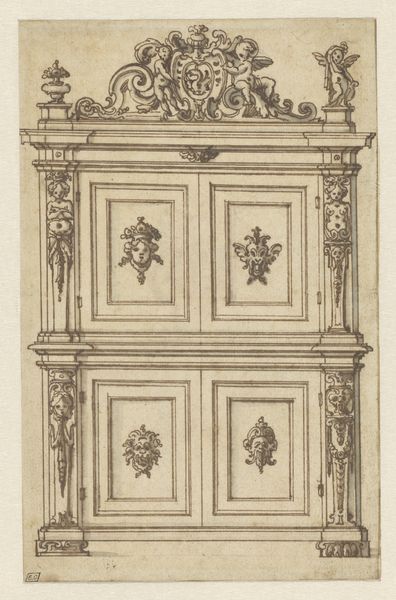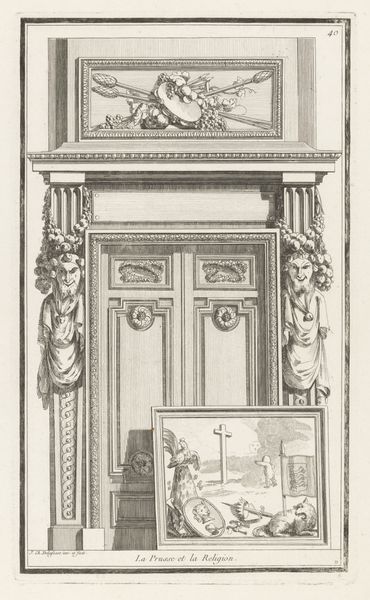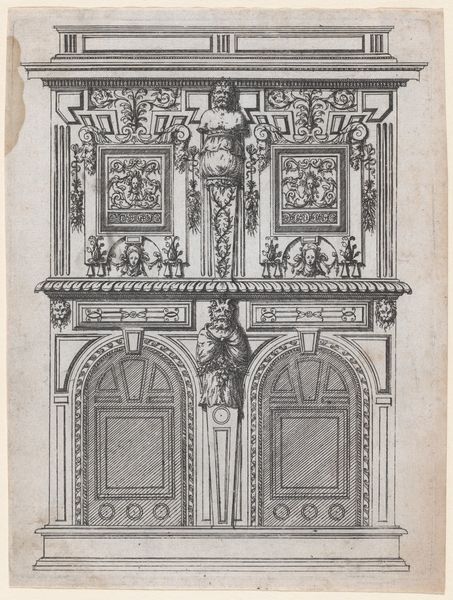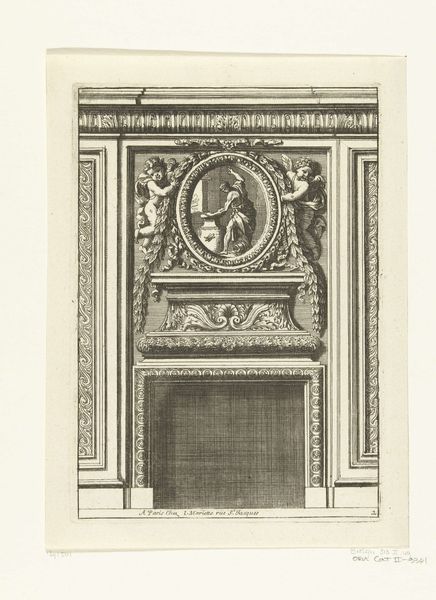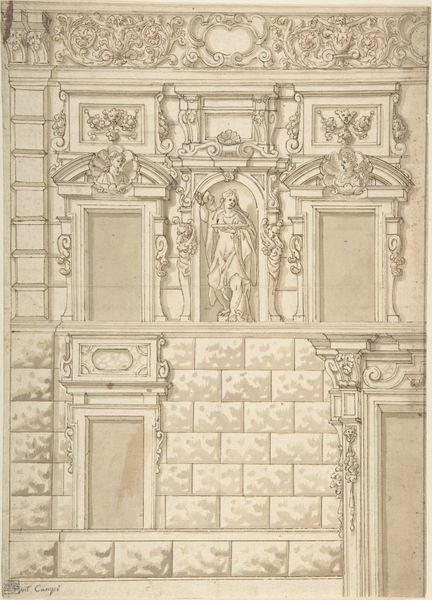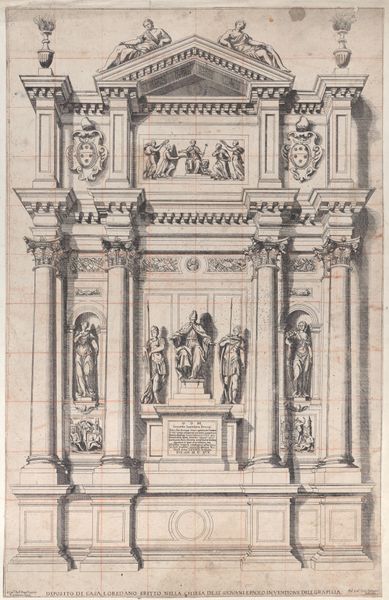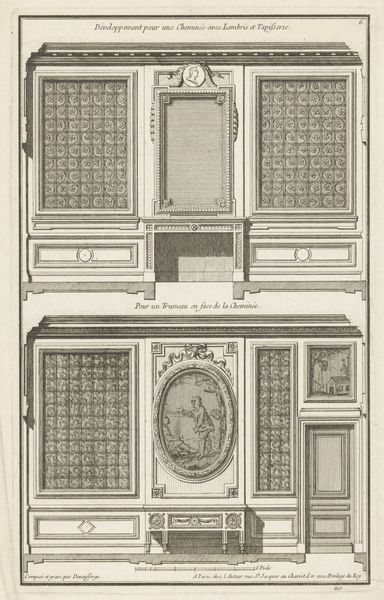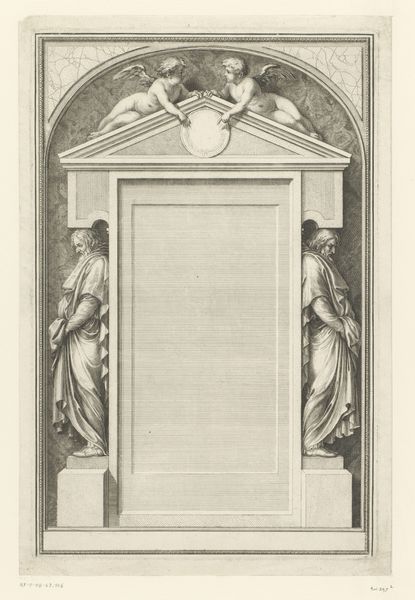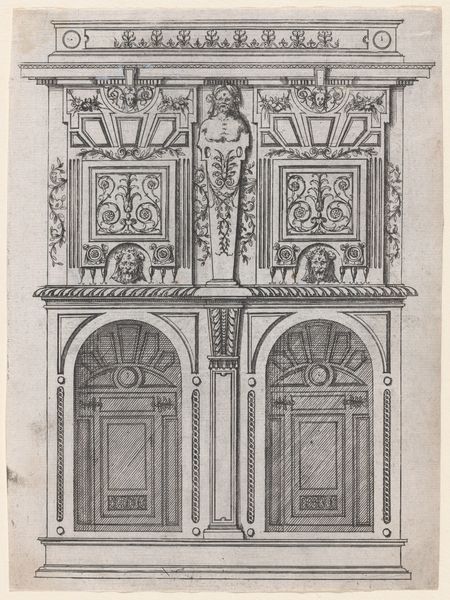
drawing, paper, engraving, architecture
#
drawing
#
neoclacissism
#
paper
#
15_18th-century
#
19th century
#
line
#
history-painting
#
engraving
#
architecture
Dimensions: height 362 mm, width 229 mm
Copyright: Rijks Museum: Open Domain
Editor: This is "Boekenkast," or bookcase, a drawing and engraving on paper from 1763 by Jean François de Neufforge. It feels so rigidly symmetrical, almost like a stage set for knowledge. What do you see when you look at it? Curator: It's fascinating how Neufforge employs Neoclassical architectural ideals, isn't it? The bookcase becomes a temple to learning. But who has access to that temple? Notice the figures sculpted above, seemingly frozen in perpetual contemplation. Whose stories are being preserved and celebrated, and whose are excluded? It speaks to the inherent power structures within knowledge itself, doesn't it? Editor: That’s a really interesting point about access. The figures definitely give the piece a hierarchical feel, like knowledge is something to be guarded. Curator: Exactly. We have to question whose perspectives are prioritized. What kind of narratives were considered worthy of being bound and enshrined in a structure like this during that era, and, critically, who was allowed to decide? Where are the female voices, the voices of colonized people, the voices of the working class in this architectural rendering of intellectual space? Are they represented or suppressed? Editor: So, it’s not just a drawing of a bookcase; it’s a statement about power. Curator: Precisely. It asks us to critically examine the historical gatekeepers of knowledge and the urgent need to democratize access to information and perspectives. Think about how architecture is rarely neutral; it reflects and reinforces the values of its time. Editor: I never would have thought about a bookcase that way. Thanks, that really changes how I see it. Curator: And for me, your initial reaction reminds me how powerfully simple forms can immediately suggest ideas of rigid structure and confinement!
Comments
No comments
Be the first to comment and join the conversation on the ultimate creative platform.
